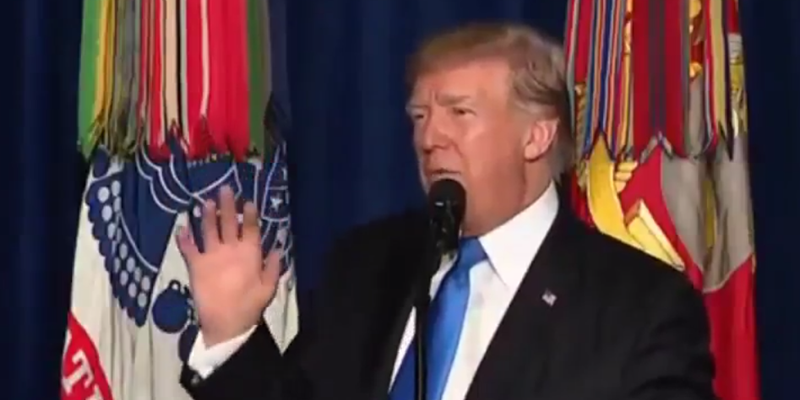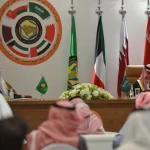Forced to acknowledge that Iran is complying with the nuclear agreement it concluded two years ago with the world’s major powers, US President Donald J. Trump appears to be groping for ways to provoke Iran to back out of the deal. If successful, Mr. Trump could spark a nuclear arms race in the Middle East at a time that a Chinese agreement to build a drone manufacturing plant in Saudi Arabia could initiate a similar drone race that threatens to take hostilities in the region to a whole new, more dangerous level.
Mr. Trump’s strategy stems from the realization that the United States would render itself impotent if he were to unilaterally terminate the agreement with Iran. America’s European allies as well as Russia and China would condemn termination, uphold their end of the agreement, and refuse to adhere by punitive measures the United States might adopt. With other words, termination would significantly reduce the United States’ ability to influence Iran.
As a result, Mr. Trump, who has described the nuclear agreement as “one of the worst deals I’ve ever seen” and vowed to “dismantle” it, has since coming to office taken steps to lower incentives for Iran to continue to adhere to the accord. The outcome of May 12 elections in Iran could play into Mr. Trump’s hands if a hardliner rather than incumbent President Hassan Rouhani were to emerge victorious.
At the same time, sticking to his desire to remain unpredictable, Mr. Trump has not ruled out terminating the agreement. Asked point blank by the Associated Press whether he would stick to the deal, Mr. Trump replied: “It’s possible that we won’t.”
The president, besides charging that Iran has violated the spirit rather than the letter of the agreement and ordering a 90 day review that in the words of Secretary of State Rex Tillerson will “evaluate whether suspension of sanctions related to Iran pursuant to the JCPOA is vital to the national security interests of the United States,” has also aligned the United States squarely alongside Saudi Arabia, which charges that the Islamic republic is the world’s foremost source of political violence. JCPOA is the acronym for the nuclear agreement or Joint Comprehensive Plan of Action.
Re-imposing US sanctions against Iran that were lifted alongside punitive United Nations measures would stop short of a unilateral termination of the agreement, but leave Iran no choice but to respond. It could retaliate with relatively meaningless sanctions of its own, but that would unlikely satisfy hard line critics as well as a sense that the agreement has so far failed to produce economic benefits for the average Iranian. On the plus side, cooler heads would likely counsel that US punitive action would allow Iran to play the international community against the United States.

Trump draws geopolitical battle lines in South Asia
Forced to acknowledge that Iran is complying with the nuclear agreement it concluded two years ago with the world’s major powers, US President Donald J. Trump appears to be groping for ways to provoke Iran to back out of the deal. If successful, Mr. Trump could spark a nuclear arms race in the Middle East at a time that a Chinese agreement to build a drone manufacturing…
James M. Dorsey is an award-winning journalist and a senior fellow at the S. Rajaratnam School of International Studies at Singapore's Nanyang Technological University. He is Co-Director of the University of Wurzburg's Institute of Fan Culture, a visiting scholar at its Institute of Sport Science, and author of the The Turbulent World of Middle East Soccer blog.







